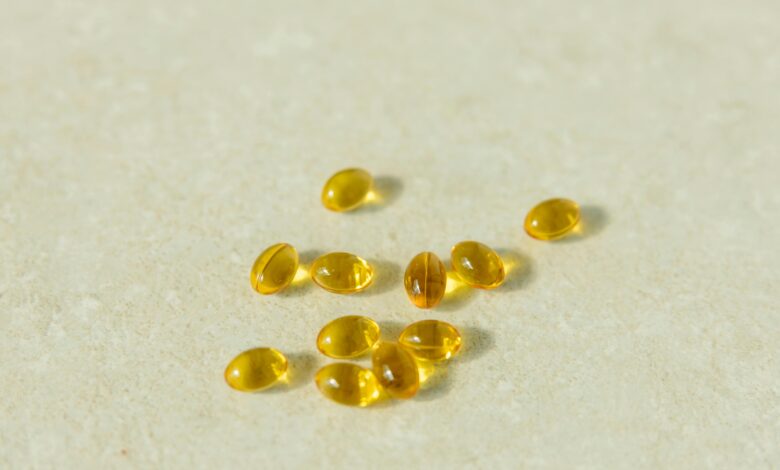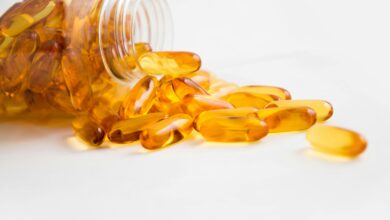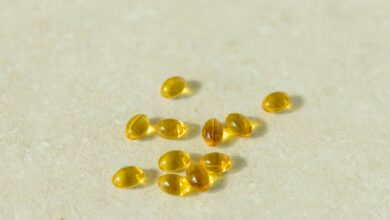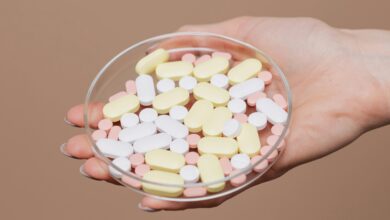The Best Supplements for Mental Clarity and Focus

In today’s fast-paced world, maintaining mental clarity and focus is more important than ever. Whether you’re a student preparing for exams, a professional managing tight deadlines, or simply someone looking to enhance cognitive performance, supplements can play a supportive role in optimizing brain function. However, with countless options available, it can be challenging to determine which supplements are truly effective and safe. This article explores the best science-backed supplements for mental clarity and focus, their mechanisms of action, potential benefits, and important considerations.
Why Focus on Mental Clarity and Focus?
Mental clarity refers to the ability to think clearly, make decisions efficiently, and process information effectively. Focus, on the other hand, involves sustained attention and concentration on tasks without distraction. Both are essential for productivity, creativity, and overall cognitive health. Factors such as stress, poor sleep, nutrient deficiencies, and aging can impair these functions, making supplementation a valuable tool for many individuals.
Before diving into specific supplements, it’s crucial to note that no supplement can replace a balanced diet, regular exercise, quality sleep, and stress management. These foundational habits should always come first. Supplements are meant to complement—not substitute—healthy lifestyle choices.
Top Supplements for Mental Clarity and Focus
1. Omega-3 Fatty Acids
- What They Are : Omega-3s, particularly EPA (eicosapentaenoic acid) and DHA (docosahexaenoic acid), are essential fats found in fish oil, krill oil, and algae-based supplements.
- How They Work : DHA is a major structural component of brain cell membranes, while EPA supports anti-inflammatory processes that benefit brain health.
- Benefits :
- Improves memory and learning.
- Enhances mood regulation and reduces symptoms of depression and anxiety.
- Supports long-term cognitive health and may reduce the risk of neurodegenerative diseases like Alzheimer’s.
- Dosage : Aim for 1,000–2,000 mg of combined EPA and DHA daily.
- Sources : Fish oil capsules, flaxseed oil, chia seeds, walnuts, and algae-based supplements for vegetarians/vegans.
2. Bacopa Monnieri
- What It Is : A traditional Ayurvedic herb used for centuries to enhance memory and cognitive function.
- How It Works : Bacopa increases the production of certain neurotransmitters, such as acetylcholine, which plays a key role in learning and memory. It also has antioxidant properties that protect brain cells from oxidative stress.
- Benefits :
- Boosts memory retention and recall.
- Reduces anxiety and promotes calm focus.
- May improve attention span over time.
- Dosage : Typically 300–600 mg per day of standardized extract containing 50% bacosides.
- Considerations : Effects may take several weeks to become noticeable.
3. Rhodiola Rosea
- What It Is : An adaptogenic herb known for its ability to combat fatigue and stress.
- How It Works : Rhodiola helps regulate cortisol levels, reducing the negative impact of chronic stress on the brain. It also enhances dopamine and serotonin activity, improving mood and focus.
- Benefits :
- Increases mental energy and stamina.
- Reduces mental fatigue during demanding tasks.
- Supports resilience against burnout.
- Dosage : 200–400 mg per day of a standardized extract (2–3% rosavins and 0.8–1% salidroside).
- Considerations : Avoid taking late in the day, as it may interfere with sleep.
4. L-Theanine + Caffeine
- What They Are : L-theanine is an amino acid found in green tea, often paired with caffeine for synergistic effects.
- How They Work : L-theanine promotes relaxation without drowsiness by increasing alpha brain waves, while caffeine provides a gentle stimulant effect. Together, they create a state of “calm focus.”
- Benefits :
- Enhances attention and alertness.
- Reduces jitteriness and anxiety associated with caffeine alone.
- Improves reaction time and task performance.
- Dosage : A common ratio is 100–200 mg of L-theanine combined with 50–100 mg of caffeine.
- Sources : Green tea naturally contains both compounds, or you can use standalone supplements.
5. Ginkgo Biloba
- What It Is : One of the oldest living tree species, ginkgo biloba has been used in traditional medicine to support brain health.
- How It Works : Ginkgo improves blood flow to the brain, enhances oxygen utilization, and combats oxidative stress.
- Benefits :
- Sharpens short-term memory and cognitive processing speed.
- May alleviate symptoms of ADHD and age-related cognitive decline.
- Supports mental clarity under stressful conditions.
- Dosage : 120–240 mg per day of standardized extract (24% flavone glycosides and 6% terpene lactones).
- Considerations : Results may vary; consistency is key.
6. Phosphatidylserine (PS)
- What It Is : A phospholipid that is a critical component of cell membranes, especially in brain tissue.
- How It Works : PS supports cellular communication and helps maintain healthy levels of neurotransmitters like dopamine and acetylcholine.
- Benefits :
- Improves memory, attention, and problem-solving skills.
- Reduces mental fatigue during cognitively demanding activities.
- May slow cognitive decline in older adults.
- Dosage : 100–300 mg per day.
- Considerations : Often derived from soy or sunflower lecithin; choose allergen-free options if needed.
7. Creatine
- What It Is : Primarily known for its role in muscle energy metabolism, creatine also supports brain function.
- How It Works : Creatine provides energy to brain cells by replenishing ATP (adenosine triphosphate), the primary energy currency of cells.
- Benefits :
- Enhances working memory and intelligence test scores.
- Particularly beneficial for vegetarians/vegans who may have lower baseline creatine levels.
- Supports mental performance during sleep deprivation.
- Dosage : 3–5 grams per day.
- Considerations : Safe and well-tolerated for most people.
8. Vitamin B Complex
- What It Is : A group of water-soluble vitamins, including B6, B9 (folate), and B12, that are vital for brain health.
- How It Works : B vitamins help synthesize neurotransmitters, regulate homocysteine levels (high levels are linked to cognitive decline), and support nerve function.
- Benefits :
- Improves mental clarity and reduces brain fog.
- Supports mood stability and reduces fatigue.
- Essential for preventing cognitive decline in older adults.
- Dosage : Follow recommended dietary allowances (RDAs); consult a healthcare provider for personalized advice.
- Sources : Whole grains, leafy greens, eggs, and fortified cereals—or supplements.
9. Magnesium (Specifically Magnesium L-Threonate)
- What It Is : Magnesium is an essential mineral involved in over 300 biochemical reactions in the body. Magnesium L-threonate is a form specifically designed to cross the blood-brain barrier.
- How It Works : Magnesium regulates neurotransmitter activity, supports synaptic plasticity, and protects against excitotoxicity (overstimulation of neurons).
- Benefits :
- Enhances memory and learning.
- Promotes relaxation and better sleep, indirectly supporting focus.
- Reduces symptoms of anxiety and depression.
- Dosage : 1,000–2,000 mg of magnesium L-threonate per day.
- Considerations : Start with a lower dose to avoid digestive upset.
10. N-Acetylcysteine (NAC)
- What It Is : A precursor to glutathione, the body’s master antioxidant.
- How It Works : NAC reduces oxidative stress and inflammation in the brain, supporting neurotransmitter balance and detoxification pathways.
- Benefits :
- Improves focus and mental clarity in individuals with ADHD or mood disorders.
- Protects against neurodegeneration.
- May reduce cravings and impulsivity.
- Dosage : 600–1,200 mg twice daily.
- Considerations : Long-term use is generally safe but should be monitored by a healthcare provider.
Important Considerations When Using Supplements
While supplements can be highly beneficial, there are a few key points to keep in mind:
- Quality Matters : Choose reputable brands that undergo third-party testing for purity and potency.
- Consult a Healthcare Provider : Always discuss new supplements with your doctor, especially if you’re pregnant, nursing, or taking medications.
- Avoid Over-Supplementation : More isn’t always better. Stick to recommended dosages to prevent adverse effects.
- Combine with Healthy Habits : Supplements work best when paired with a nutritious diet, adequate hydration, regular exercise, and good sleep hygiene.
- Be Patient : Some supplements, like bacopa and ginkgo, require consistent use over weeks or months to show results.




